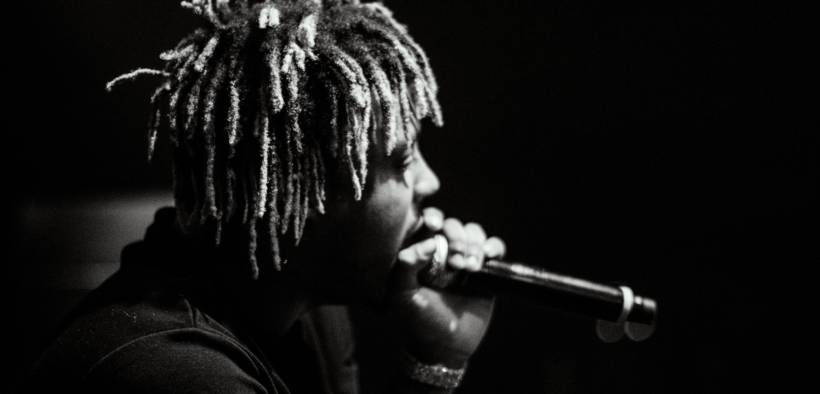Helping Teens Cope With The Tragic Loss of an Idol

In the case of Juice Wrld’s tragic passing, this can be an opportunity to let your teen talk about touchy subjects, like mental health and substance abuse.
On December 8th, many teens were left to deal with the tragic, unexpected loss of rap artist 21-year-old Juice Wrld after he suffered a seizure in the Chicago airport. Juice Wrld represented the more emotional side of rap – with his vulnerable and honest lyrics, his fans found it easy to connect to such an open book. Regardless of the fact that prescription drugs, the opioid crisis, mental health, and addiction played a role, this death seriously hit home to many fans, as the loss of an idol always does.
The Role of Social Media
For younger generations, the death of an idol is a more personal experience than many people realize. Social media allows our youth to really connect with their icons. With platforms like Instagram and Snapchat, celebrities are able to post tidbits of their lives all the time, and fans are watching. This level of connection allows fans and stars to relate to and really get to know one another. Fans begin to feel as though they know their icon on a personal level, making the loss of a celebrity that much harder.
What Parents Need to Know
Many icons that die young are riddled with mental health problems or drug addiction. Some hide it, while others are more open. Juice Wrld, for example, was brutally honest with his battles with substance abuse. He spoke of sadness and allowed himself to get vulnerable with the entire world. Just because he was involved in some less than admirable things in his life doesn’t mean that his vulnerability didn’t touch the hearts of millions.
Juice Wrld’s mother recently spoke out about his drug addiction, as well as his drive to help others. His mother, Carmella Wallace, explained that “addiction knows no boundaries and its impact goes way beyond the person fighting it…[Juice Wrld] wanted to help others know they weren’t alone in their struggles.”
Furthermore, there are plenty of idols who have struggled with an addiction that many people are unaware of, that teens still look up to. For example, Zac Efron, Daniel Radcliffe, and Johnny Depp have all had their battles with addiction. Just because these celebrities have struggled with drug or alcohol abuse doesn’t mean they are bad people. It simply means they are people – and all people are flawed. Similarly, teens who look up to these idols deserve to grieve, no matter their idol’s flaws. When it comes to helping teens cope with the death of an icon, it’s important that parents view these icons not for their flaws, but for the good things that they have accomplished. Additionally, it’s completely normal for teens to grieve the death of a celebrity, especially if teens have developed a perceivable bond with the icon.
Helping Teens Cope
When it comes to grief, our first reaction is often to try and make people feel better. We want our loved ones to laugh, smile, and joke – we don’t like seeing people we care about in pain. However, it’s important to remember that grief is a healthy and necessary process. When you try to make someone stop feeling sadness, you are sending the message that they shouldn’t be sad. Instead, let teenagers be sad and grieve. Allow them this vulnerable time and ask them what you can do to support them.
In many cases, it’s a great idea to find a way to remember their deceased idol. Whether it is watching old movies, listening to music, or sending a letter or flowers to a memorial service, finding a way to celebrate the positives that a celebrity has brought into a teen’s life is important. It allows them to grieve while looking at all of the reasons ta teen’s idol was so important to them.
In addition, encourage your teen to talk about this loss. In the case of Juice Wrld’s tragic passing, this can be an opportunity to let your teen talk about touchy subjects, like mental health and substance abuse. Rather than lecturing your teen, saying things like “see, this is why people shouldn’t use drugs,” use this as an opportunity to make sure your teen knows the risks. Let them know you are deeply saddened by this tragic loss, as well.
Grief is never easy. Even if it is somebody that teenagers don’t know personally, social media makes it easy to make connections with today’s celebrities. As a result, it’s important to validate their grief – especially when they are grieving someone who played such an integral role in their adolescent development.








Teens need help to avoid idolizing anyone.